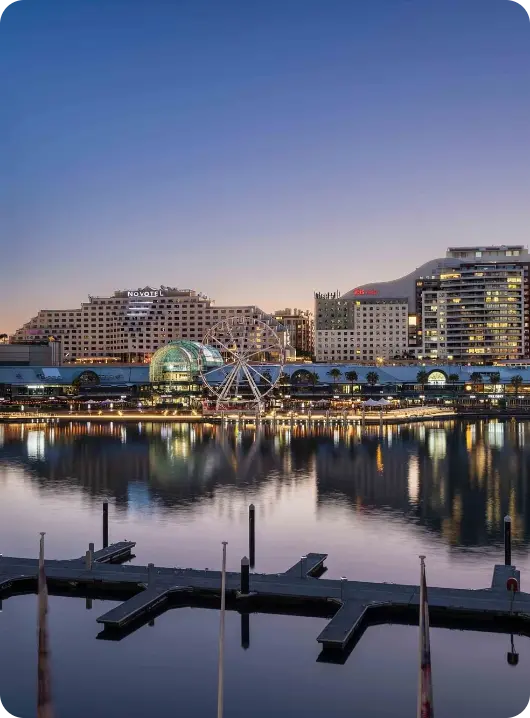Prudence Marzinotto
Expedia x ChatGPT: Why Hotels Risk Getting Cut Out of the Booking Conversation
The booking funnel has changed, and most hotels haven’t noticed. Increasingly, travel planning doesn’t start with Google, Instagram, or your website. It starts with a simple question inside an AI chat tool. Expedia’s integration with ChatGPT now allows users to ask open-ended travel questions, receive personalised hotel recommendations, and complete bookings all without leaving the conversation.
It’s not a search. It’s not a scroll. It’s a closed loop.
That shift might sound like a threat, but it’s actually a signal. The guest journey is evolving, and the hotels who act fast can gain the upper hand. The same tools powering Expedia’s visibility are available to you. The opportunity? Be where the conversation starts.
From Search to Chat: The New Booking Funnel
The typical travel path starts with Google. A user might type, “best boutique hotel in Queenstown” and scroll through ads, OTA links, maybe land on a hotel’s own site. Hotels had a fighting chance if their SEO and ads were on point.
Now? A growing number of users simply ask ChatGPT:
“Where should I go for a winter escape that’s pet friendly in upstate New York?”
“Which hotels in Tokyo are best for couples and have scenic views?”
“Plan me a 3-day food and wine weekend in Tasmania, I’m vegetarian.”
| Traditional Booking Funnel | AI Chat Booking Funnel |
|---|---|
| Google Search | AI Prompt (ChatGPT) |
| Meta Search & OTA Clicks | Direct Expedia Plugin |
| Website Visit | Instant Chat Suggestion |
| Booking Page | One-tap In-Chat Booking |
| Email Confirmation | Expedia App Itinerary |
Expedia’s ChatGPT plugin means users get curated hotel suggestions pulled from Expedia’s inventory, bookable in one click without opening a new tab.
But here’s the upside: AI tools don’t just favour big budgets. They favour structured content, relevance, and clear intent. With the right optimisation, your hotel can show up first.
Why This Matters: Expedia Is Now a Travel Assistant, Not Just a Platform
Expedia is no longer just listing accommodation. It’s positioning itself as a fully integrated travel assistant, one that simplifies planning and shortens the path to booking.
Through its partnership with OpenAI, Expedia’s mobile app now features a ChatGPT interface where users can:
- Ask open-ended travel questions.
- Get real-time hotel recommendations with pricing and links.
- Save options into AI-generated “Trip Boards”.
- Finalise bookings within the same chat session.
These are all replicable strategies and most hotels aren’t using them. Yet.
The Numbers Behind the Shift
Let’s talk data:
- 60% of travellers are open to using AI for trip planning. According to a survey by Travelfika, 60% of global travellers express a willingness to utilise AI-based tools for planning their trips.
- Travel is among the top categories for AI-assisted planning. While specific rankings vary, travel-related queries are increasingly common on AI platforms like ChatGPT, indicating a growing reliance on AI for travel planning.
- Expedia’s ChatGPT integration streamlines the booking process. Expedia has integrated ChatGPT into its mobile app, allowing users to engage in open-ended conversations for personalized travel recommendations, which are saved to their profiles for seamless bookings.
This data underscores a clear trend: the discovery phase of travel planning is increasingly occurring within AI-driven platforms, and OTAs like Expedia are embedding themselves early in this process. With 60% of your future guests exploring trips through AI tools, there’s massive opportunity to become their first answer.
The Impact for Hotels: Less Visibility, Fewer Relationships
When Expedia owns the search and the answer, it also owns the relationship.
That creates three challenges for hotels:
- Decreased Direct Traffic
If guests never land on your website, you lose brand exposure, upselling opportunities, and first-party data collection. - Increased Reliance on OTAs
More bookings via Expedia means higher commissions, less control over the guest journey, and reduced margins. - Zero Discovery Time
In a traditional search model, a user might stumble across your blog, your local guide, or your unique story. In chat, the answer is instant, and it rarely includes your site.
But this isn’t irreversible. AI doesn’t hate hotels. It just prefers clean, structured data
Expedia’s Strategic Advantage: Structured Data and AI Fluency
Expedia’s success here isn’t accidental. It’s built on:
- Rich, structured data (schema markup, availability feeds, real-time pricing).
- Entity-based SEO that machines can interpret.
- A massive library of guest reviews and FAQs.
- Integration-ready tech infrastructure.
This makes Expedia the “easiest” answer for AI tools like ChatGPT to reference. Its listings aren’t just optimised for humans, they’re optimised for AI.
What Hotels Can Do
Hotels don’t need to outspend Expedia to be seen. But they do need to be structured, discoverable, and ready for AI search. At HyperHotels, we specialise in helping hotels step into that future.
Here’s what matters most:
1. Answer Engine Optimisation (AEO)
Optimise your website for AI discovery. That means:
- Proper schema markup for hotels, offers, FAQs, and location.
- Content formatted in bullet points, lists, and Q&A structures.
- Using language that matches how travellers ask questions.
2. Local Entity Building
AI tools reference trusted data sources. Make sure your hotel is:
- Listed accurately on Google Maps, Apple Maps, Waze to TripAdvisor and more.
- Keep NAP (name, address, phone) data accurate.
- Link to trusted sources where your property is mentioned.
3. Foundational SEO still needed
Cover the basics:
- Ensure fast, mobile-first site performance.
- Use unique page titles and meta descriptions.
- Optimise internal linking and crawlability.
- Submit updated sitemaps.
Final Thought: Discovery Is Moving Upstream
Guests aren’t searching later. They’re deciding earlier, before they even open a browser.
If you’re not optimised for AI, you’re not just lower down the funnel — you’re not in it.
But discovery isn’t lost. It’s been redefined. And hotels that embrace this shift now can lead the next wave of guest acquisition. Want to know where your hotel stands in the AI
search landscape?
We’ll show you exactly where you’re being found, and where you’re being missed.

Prudence Marzinotto
Digital Marketing Manager

Transforming Novotel Sydney Darling Harbour
Sydney’s multi-million
SUCCESS STORY.
+$7,196,383
Achieved in 3-years.
“I have been a part of implementing Search at multiple hotels. We’ve seen improvements in our positions and rankings – the business effects have been positive and well received in the hotels.”

CASSIE COX
Director of Sales & Marketing
Mercure Gold Coast Resort